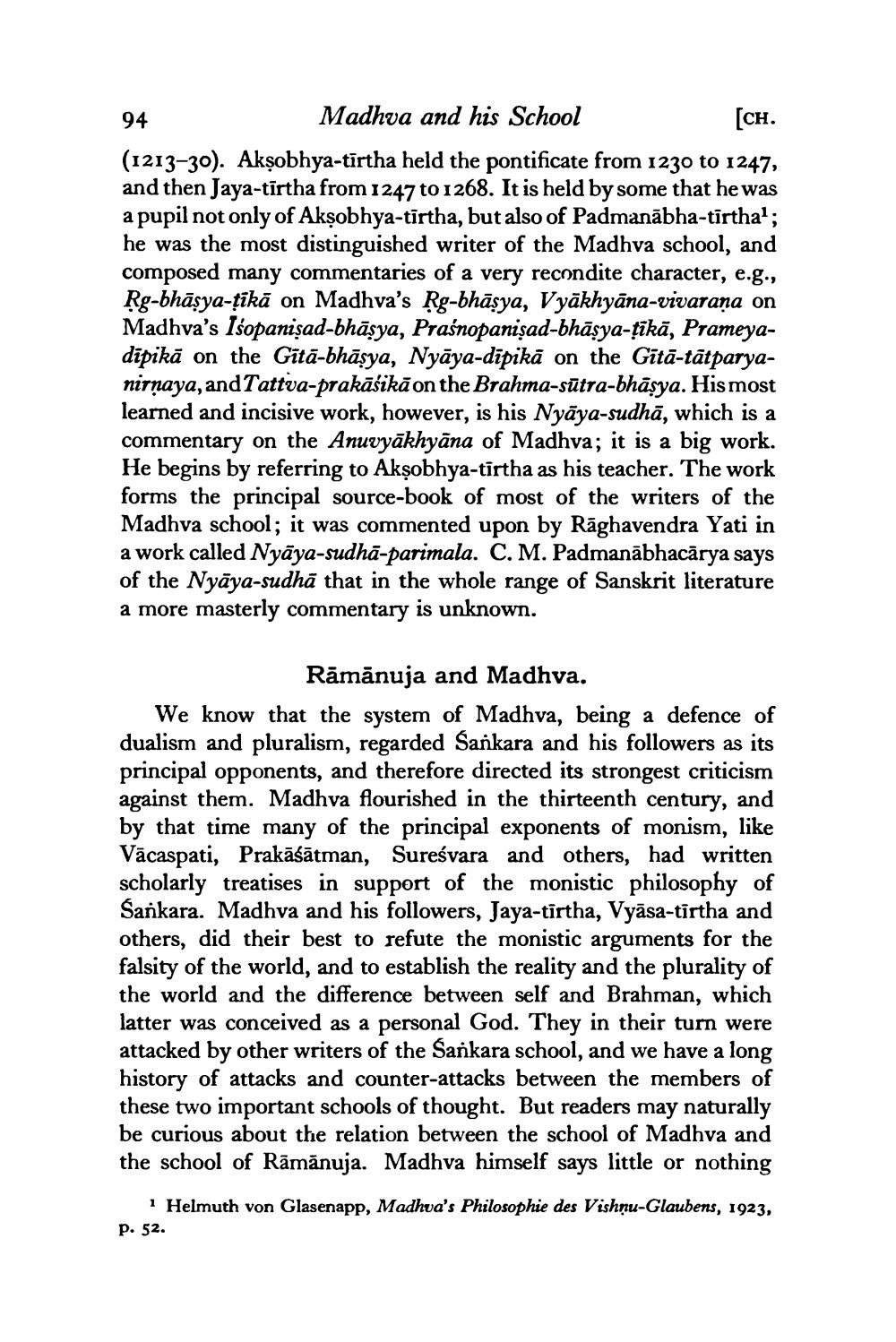________________
94 Madhva and his School
[CH. (1213-30). Akşobhya-tīrtha held the pontificate from 1230 to 1247, and then Jaya-tīrtha from 1247 to 1268. It is held by some that he was a pupil not only of Aksobhya-tīrtha, but also of Padmanābha-tīrtha"; he was the most distinguished writer of the Madhva school, and composed many commentaries of a very recondite character, e.g., Řg-bhāsya-țīkā on Madhva's Rg-bhāsya, Vyākhyāna-vivarana on Madhva's Isopanişad-bhāsya, Praśnopanişad-bhāsya-tīkā, Prameyadipikā on the Gītā-bhāsya, Nyāya-dīpikā on the Gītā-tātparyanirnaya, and Tattva-prakāśikāon the Brahma-sūtra-bhāsya. His most learned and incisive work, however, is his Nyāya-sudhā, which is a commentary on the Anuvyākhyāna of Madhva; it is a big work. He begins by referring to Akşobhya-tīrtha as his teacher. The work forms the principal source-book of most of the writers of the Madhva school; it was commented upon by Rāghavendra Yati in a work called Nyāya-sudhā-parimala. C. M. Padmanābhacārya says of the Nyāya-sudhā that in the whole range of Sanskrit literature a more masterly commentary is unknown.
Rāmānuja and Madhva. We know that the system of Madhva, being a defence of dualism and pluralism, regarded Sankara and his followers as its principal opponents, and therefore directed its strongest criticism against them. Madhva flourished in the thirteenth century, and by that time many of the principal exponents of monism, like Vācaspati, Prakāśātman, Sureśvara and others, had written scholarly treatises in support of the monistic philosophy of Sankara. Madhva and his followers, Jaya-tīrtha, Vyāsa-tirtha and others, did their best to refute the monistic arguments for the falsity of the world, and to establish the reality and the plurality of the world and the difference between self and Brahman, which latter was conceived as a personal God. They in their turn were attacked by other writers of the Sankara school, and we have a long history of attacks and counter-attacks between the members of these two important schools of thought. But readers may naturally be curious about the relation between the school of Madhva and the school of Rāmānuja. Madhva himself says little or nothing
Helmuth von Glasenapp, Madhua's Philosophie des Vishnu-Glaubens, 1923, p. 52.




